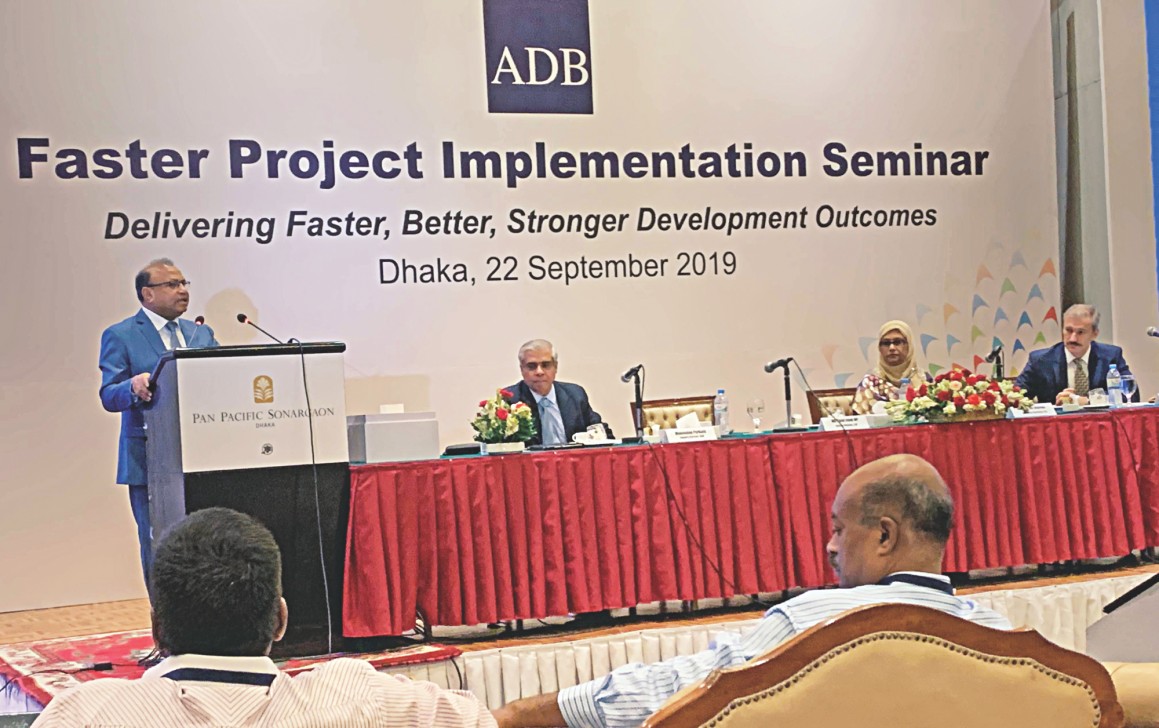Graft to blame for project delays: Tazul

Corruption is the major reason for delays and weak implementation of development projects, said a senior minister yesterday.
“Productive projects should be selected to help revenue generation meet increasing budgetary allocations every year,” said Md Tazul Islam, minister for local government, rural development and co-operatives.
Addressing a discussion organised by Asian Development Bank on Faster Project Implementation Week 2019 at the Sonargaon hotel, he said the prime minister was committed to addressing corruption and her stance was zero tolerance.
On implementing projects faster, he said good designs, understanding of project plans and realistic timelines were crucial.
The prime minister focused on addressing the power and energy crisis after coming to power 10 years ago and that augmented industrialisation, he said.
“We are also optimistic about further developing rail and road connectivity to expand economic activities. The ADB is backing the development initiatives of the government. We are optimistic about quality and right projects to ensure value for money,” the minister added.
When projects are completed on time, within cost and with proper quality, they deliver the best outcomes to people, said Manmohan Parkash, country director of the ADB. “The faster the projects are implemented, the earlier the results are delivered to the people, thereby enabling people to get benefits more quickly,” he said.
The ADB has undertaken several reforms to expedite project implementation.
The new framework encourages better suppliers, contractors and consultants to work on ADB-financed projects, which will help to deliver projects faster, Parkash said.
Skills to conduct due diligence, quickly identify and respond to fraud, corruption, collusion and coercion in procurement and contract implementation will be strengthened, he said.
Bangladesh is the gateway to the east for India, west for ASEAN and south for China, Bhutan and Nepal, he added.
In the last five years, the ADB’s lending volume to Bangladesh has tripled.
In 2018, the Manila-based multilateral lender committed the highest level of support of $4.8 billion to Bangladesh, with eight sovereign projects totalling $2.2 billion in loans and grants, $16.5 million in technical assistance and $2.6 billion mobilised in co-financing.
The ADB mainly supports six sectors in Bangladesh: energy, transport, water and other urban infrastructure and services.
Bangladesh is the second largest portfolio of the ADB, with 54 projects under implementation encompassing over $10 billion.
The success of a project depends on sincere effort, highest input and responsibility of project director and staff, said Fardia Nasreen, additional secretary to economic relations division.
“Our target should be to complete the project before the stipulated timeframe,” she said.
She emphasised on perfecting feasibility studies before preparing project plans to avoid delays in implementation and cost overruns.
